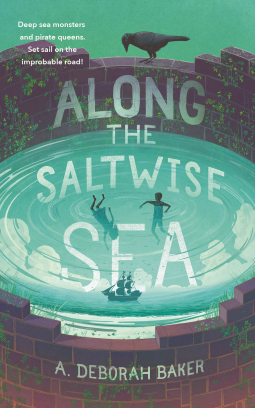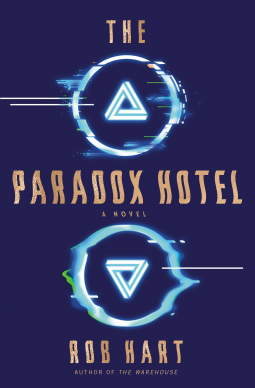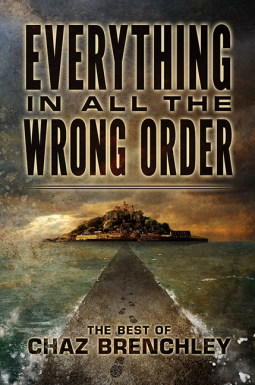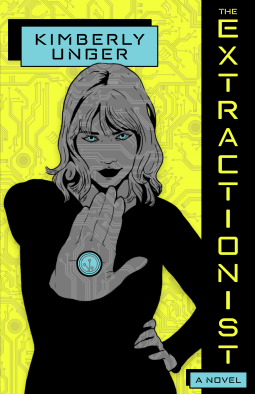Deborah J. Ross's Blog, page 27
July 11, 2022
[politics] Strategies for Reclaiming the Right to Choose
 The New York Times recently published a piece by Kate Zernike, "The Long Road to Reclaim Abortion Rights." Because it's behind a paywall and the information is so important, I've summarized it here.
The New York Times recently published a piece by Kate Zernike, "The Long Road to Reclaim Abortion Rights." Because it's behind a paywall and the information is so important, I've summarized it here.Abortion rights groups have mounted a multilevel legal and political attack aimed at blocking and reversing abortion bans in courts and at ballot boxes across the country. They have rolled out a wave of lawsuits in nearly a dozen states to hold off bans triggered by the court’s decision, with the promise of more suits to come. They are aiming to prove that provisions in state constitutions establish a right to abortion. They are also working to defeat ballot initiatives that would strip away a constitutional right to abortion and to pass those that would establish one, in states where abortion access is contingent on who controls the governor’s mansion or the state house.
Democratic-aligned groups are campaigning to reverse slim Republican majorities in some state legislatures and to elect abortion rights supporters to positions from county commissioner to state supreme court justices that can have influence over the enforcement of abortion restrictions.
The path ahead is slow and not at all certain. Polls show that Americans overwhelmingly say that the decision to have an abortion should be made by women and their doctors rather than state legislatures. But Republican-controlled state legislatures have passed hundreds of restrictions on abortion over the last decade, and legislative districts are heavily gerrymandered to protect Republican incumbents. Litigation in state courts will be decided by judges who in many cases have been appointed by anti-abortion governors.
Abortion rights groups say their cases offer a viable path forward to establish protections in states. Even in conservative states such as Oklahoma and Mississippi, they see an opportunity to overturn abortion bans and establish a constitutional backstop against further restriction. But in other places, the goal of the litigation is to at least temporarily restore or preserve abortion access, now that the court’s decision stands to make it illegal or effectively so in more than half the states, which include 33.5 million women of childbearing age.
In Louisiana, for example, though the state constitution expressly says there is no right to abortion, the legal challenge has allowed three clinics to continue serving women whose plans to end their pregnancies were thrown into disarray by the court’s decision.
By Friday, the groups had temporarily blocked bans from taking effect in Utah, Kentucky, Louisiana, and Florida; judges have set hearings over the next several weeks to consider permanent injunctions. But they lost bids to hold off bans in Ohio and Texas.
The legal challenges argue that the Supreme Court’s decision has thrown abortion providers and patients into chaos, subjecting them to state laws that are often unclear, contradictory or confusing. Women have shown up for appointments only to be told that their pregnancies have now progressed too far to be eligible for abortion under new laws banning abortion after six weeks. In Montana, Planned Parenthood clinics said recently that they would require proof of residency for women seeking abortion pills, because of fears that prosecutors in other states might prosecute anyone who helped their residents get abortions.
Abortion rights groups have not given up on hopes of federal action to protect abortion: They are pushing President Biden to use a declaration of a public health emergency to allow the Department of Health and Human Services to authorize out-of-state providers to prescribe and provide abortion pills to women in states where abortion bans have made them illegal.
“If the Supreme Court and Justice Alito and the anti-abortion advocates thought this was going to settle the question, they are going to see just how wrong they are,” Anthony Romero, executive director of the American Civil Liberties Union, said in a news conference Friday alongside lawyers and leaders from the Center for Reproductive Rights and Planned Parenthood. “The proliferation of litigation that will embroil the states in our country for years to come is going to underscore that this is not settled in the public’s mind.”
The lawsuits argue that state constitutions offer more protection for abortion than the federal constitution, either by state tradition or history. Some, such as Florida’s, include an explicit right to privacy. In Kentucky, lawyers argue their constitution provides a right to “bodily autonomy” as well as privacy. The Roe decision in 1973 declared that the U.S. Constitution afforded a right to privacy that included a woman’s right to abortion; while the Supreme Court overturned that decision, it generally cannot overturn what states say in their own constitutions.
The suit in Utah, one of the most conservative states in the country, seeks to protect abortion under a provision of the state constitution — adopted in 1896 — that provides that “both males and female citizens of this state shall enjoy equally all civil, political and religious rights and privileges.” Largely because of the influence of the Church of Jesus Christ of Latter-day Saints, the constitution also ensures that state residents have the right to plan their own families; the lawsuit argues this includes the right to choose abortion.
Even in states where lawsuits have been successful, abortion rights groups say they are playing Whack-a-Mole. In Utah, as soon as the court put a temporary injunction on the state’s trigger law banning abortion, a legislator declared that the state’s law against abortion after 18 weeks, which courts had upheld while Roe was in effect, was now the operative law.
In Kansas, a state Supreme Court decision in 2019 found a right to abortion under the constitutional provisions for “equal and inalienable natural rights, among which are life, liberty, and the pursuit of happiness.” But anti-abortion groups put an initiative on the primary ballot this August that seeks to amend the constitution to explicitly say that it does not include a right to abortion, and that the Legislature has the authority to pass further restrictions. That vote will be the first indication of how much the outrage seen in response to the Supreme Court’s decision translates into support for abortion rights in elections.
Historically, voters who oppose abortion have been more driven to vote on the issue than those who support a right to abortion. But polls taken since the leak of a draft of the Supreme Court’s decision in May and the final decision in late June show that those who support abortion rights — largely Democrats — now cite it as one of their top concerns and that the court’s decision has motivated them more to vote in elections this fall.
Vote Pro Choice is attempting to turn out women, especially Black and Latina women, to vote in races including county commissioners, judges and sheriffs, particularly in states such as Texas and Georgia with restrictive abortion laws — positions responsible for enforcing anti-harassment laws outside abortion clinics, and deciding whether to give government money to crisis pregnancy centers, which anti-abortion groups have used to steer women away from abortions.
Democrats need to learn from the successes of the anti-abortion groups and Republicans, said Sara Tabatabaie, the group’s chief political officer. “We have been out-raised, out-organized and out-funded for 50 years, and that is across the board,” she said. But she is encouraged by the number of people who say abortion will guide their votes in November: “In moments of tragedy, I am hopeful that there comes solidarity and increased clarity.”
July 8, 2022
Very Short Book Reviews: Smart Oceans and Other Treasures
 Along the Saltwise Sea, by A. Deborah Baker (Tordotcom)
Along the Saltwise Sea, by A. Deborah Baker (Tordotcom)Along the Saltwise Sea follows the children from A. Deborah Baker’s (Seanan Mcguire’s) Over the Woodward Wall. Two adolescents—conformist Avery and adventuresome Zib, have found their way into the Up-and-Under, a magical world, via the aforementioned wall. Here they encounter all manner of creatures, from sarcastic owls to evil Pages to Niamh the drowned girl, and a girl composed of a murder of crows. Of course, they’re given a quest to fulfill to return home.
Along the Saltwise Sea adds even more delicious elements to their story: pirates! An intelligent ocean! A mysterious passenger!

Noor, by Nnedi Okorafor (DAW)
Okorafor’s work invites us into a world of the future, but one in which the foundational culture is not derived from Western Europe but situated in Africa. Her underlying premise is that the Africans of the future, in this case Nigerians, have developed their own rich technologies. Two stand out for me in this novel: harvesting solar and wind energy in the deserts of northern Nigeria; and the heroine herself, whose cyborg body has been extensively augmented. At the same time, herdsmen follow ages-old traditions. In Okorafor’s skillful hands, high tech and ancient ways of life blend into a seamless whole.
The Cat Who Saved Books, by Sosuke Natsukawa (HarperVia)

What a sweet story, featuring a reclusive teen, a bookstore full of used classics, and a talking cat bent on saving books. I found the slow pace deceptive, for there is a great deal going on between the words and the worlds. The book weaves together a series of quests with the slow process of Rintaro’s grief at his grandfather’s death evolving toward renewed engagement with life and self-confidence, all framed in discussions of the role of books, ideas, and story-telling, not to mention the publishing and book-selling industries.
July 4, 2022
In Troubled Times: Tenaciously Hopeful
 I first posted this on January 2, 2017, right after the presidential election. I'm putting it up again as a reminder of how important it is to take care of our mental well-being in troubled times.
I first posted this on January 2, 2017, right after the presidential election. I'm putting it up again as a reminder of how important it is to take care of our mental well-being in troubled times.Recently, I’ve noticed more articles on staying grounded in joy and hope, even when surrounded by fear. Perhaps such articles have always been part of the general social media discourse and I am only now becoming sufficiently calm to notice them. But I rather think (hope!) this is a trend. In me, it certainly is. After the initial rounds of fear and trepidation, the constant adrenaline wore off. I’m not naturally a person who enjoys being fearful; from my experience training dogs, I suspect it’s not an appealing state for most of us. Some, I suppose, enjoy the “high” of confrontation, even violence, but I’m not among them. Harming others and myself is not where I want to live my life.
I see also posts affirming commitment to action, often in terms of “We Will Fight On!” and I’ve been resisting the urge to jump on that bandwagon. (Also the “Organize the Resistance” brigade.) It all sounds so necessary, a matter of putting my money where my mouth is. And is just as unrealistic for me as remaining in that state of terrified fury.
As unhealthy.
I am not objecting to others following the paths to which they are led. Resisting fascism and protecting the most vulnerable are inarguably vital to our survival as individuals, communities, and a society. I am thrilled that people have the drive and knowledge to organize such resistance. I will be right there, cheering them on. But I won’t be in the forefront.
It’s taken me a long time, coming from a family of dyed-in-the-wool organizers (labor unions, radical politics, war resistance, etc.) to come to terms with not being one of them. Undoubtedly, seeing the cost to my family played a role in my reluctance. I’ve marched in my share of civil rights and anti-war demonstrations, written a gazillion letters, painted an equal number of signs. But it’s not where my heart is. I’ve seen the joy in the eyes of those for whom this is their passion, their “thing.” I want to hug them all and say, “I’m so glad you’re out there, doing this for both of us.”
The fallacy is that making the world a better place is an either/or proposition. Either I’m out there, making headlines by facilitating events of vast numbers for the people’s revolution (as an example), or I’m sitting at home, knitting while Yosemite burns.
The fact is, any social movement happens on many levels. There’s the outward, banner-headline, political level, one that often requires organization on a national or international level. There is a community level, supporting your neighbors, particularly those in need. Soup kitchens are just as necessary as demonstrations outside the White House, although they serve fewer people. Taking care of ourselves and our families is yet another.
Quiet, mindful actions that focus on compassion, justice, and unity need not be limited to small numbers. In fact, outward activism must be balanced by inner activism. We can all find where we are called to act along that spectrum, and we can move back and forth (or in and out, whichever image works best) with circumstances, experience, and energy levels. What a relief to realize I don’t have to pick one thing or level of involvement!
So what speaks to me right now is remembering joy. The year to come is almost certainly going to be full of occasions for grimness if not despair, so I don’t want to start off that way. I want to full up my “savings account of hope” as much as I can, cultivating those people, places, and things that lift my spirits. I want to never, ever let go of believing we can survive this, kindness and persistence will triumph, and no matter how dark it may seem at the moment, love will win.
I refuse my consent to fascism. I also refuse my consent to despair.
I affirm that I will cling tenaciously – relentlessly – to hope, and I invite you to do so, too.
July 1, 2022
Short Book Reviews: A Time-Twisting Murder Mystery
 The Paradox Hotel, by Rob Hart (Ballantine)
The Paradox Hotel, by Rob Hart (Ballantine) If we ever managed to figure out time travel, who would control it? How would we prevent time tourists from messing with the past—and would that warp the present, as in the grandfather paradox? In Rob Hart’s latest novel, The Paradox Hotel, the US government has been policing time tourism and historical research expeditions, only now they’ve run out of funds and the franchise is about to go to auction.
January Cole works security at the Paradox Hotel, which hosts time travelers awaiting their scheduled “flights to the past” at the nearby Einstein Institute. She’s a seasoned time traveler herself, having made many trips as part of the policing agency. As a result of spending too much time in the past, she’s become Unstuck, with the result that she often sees events and people from prior times. The best of these incidents allow her to be with her sweet, loving girlfriend, now dead. But January’s condition is worsening, and she’s not only seeing the past but the future. That future includes a corpse in Room 526.
With trillionaires arriving for the auction, baby velociraptors on the loose, and January’s grip on the present moment growing ever less reliable, it’s inevitable that more things will go wrong…starting with a series of “accidents” befalling the powerful, ultra-wealthy bidders. Clocks run backward, time seems to stutter, the treatment for being Unstuck no longer works, and January’s running out of time to stop the murder.
I loved the convolutions of time, January’s wrestling with grief and guilt, the dips into the past, and of course, the baby velociraptors that grow much too fast, all with the fast pacing of a thriller. In short, Hart’s time-twisting murder mystery satisfies on many counts.
June 27, 2022
In Troubled Times: Numbing Out
 I first posted this on December 12, 2016, right after the presidential election. I'm putting it up again as a reminder of how important it is to take care of our mental well-being in troubled times.
I first posted this on December 12, 2016, right after the presidential election. I'm putting it up again as a reminder of how important it is to take care of our mental well-being in troubled times.I have long understood the dangers and seductions of overwork. I’ve frequently coped with stress by balancing my checkbook or going over budget figures. Or reading and replying to every single email in my Inbox. It needn’t be intellectual work: scrubbing bathrooms or reorganizing closets works just fine. All these things involve attention to detail and (to one degree or another) restoring a sense of order to an otherwise capricious and chaotic world. I come by it honestly; when I was growing up, I saw my parents, my father in particular, plunge into work in response to the enormous problems our family faced. He and I are by no means unique. We live in a culture that values work above personal life and outward productivity over inner sensitivity.
“Work” doesn’t have to result in a measurable output. Anything that demands attention (preferably to the exclusion of all else) will do. Reading news stories or following social media accomplish the same objective and have the same result: they put our emotions “on hold.”
As I’ve struggled to detach from the waves of upsetting news, I have noticed an increased tendency in myself to overwork. It occurs to me that I reach for those activities in a very similar way other folks might reach for a glass of liquor or a pack of cigarettes (or things less legal). Or exercising to exhaustion, or any of the many things we do to excess that keep us from feeling. There’s a huge difference between the need to take a breather from things that distress us and using substances or activities in a chronic, ongoing fashion to dampen our emotional reactions. The problem is that when we do these things, we shut off not only the uncomfortable feelings (upset, fear, etc.) but other feelings as well.
The challenge then becomes how to balance the human desire for “time-out” from the uncertainties and fears of the last few weeks and not numbing out. In my own experience, the process of balancing begins with awareness of what tempts me, whether I indulge in it or not. Is it something that can be good or bad, depending on whether I do it to excess? (Exercise, for example.) Or something best avoided entirely? (Some forms of risk-taking behavior, like unprotected sex with strangers.) If it can be both a strength and a weakness, how do I tell when enough is enough, or what a healthy way to do this is?
When is it time to run away (to Middle Earth, to a night club, to answering every single Tweet) and when is it time to come back? Am I able to extricate myself or do I need external help (an alarm clock, a family member)?
What about getting creative with escapes? Instead of binge-watching Stranger Things, how about taking the dog for a long hike and then watching one episode? A bubble bath instead of a drink? Calling a trusted friend before clicking on FaceBook?
Finally, a word on being gentle with ourselves. No matter how resourceful and conscious I am, I’m going to slip. That’s part of human nature. All these numbing escapes work, and that means not only will we reach for them, we’ll keep doing them. Will power alone isn’t enough to break us out of a session that’s gone on way too long (or that fourth drink or second pack of cigarettes). Some days we’ll do better than others. So it’s important to be kind to ourselves and others. We’re all coping with a difficult time, sometimes in healthier ways than others. Beating ourselves up for spending too much time playing video games won’t stop us the next time we reach for the console: it will only give us one more thing to escape from. One of the most helpful things I’ve done is to talk to others about what’s going on with me. If I notice my eyes and shoulders are screaming at me from too many hours staring at a computer screen, that’s a great opening for a conversation. I can ask for a friendly ear, whether I want advice or not. Commiseration and sharing of our different experiences – our failures as well as our successes – makes me more likely to try something else.
What escapes appeal to you particularly these days? Are they healthy (or can they be, if indulged with moderation)? How do you handle occasions of excess? What helps you to stay in touch with your feelings, or to come back to them after a break?
June 24, 2022
Short Book Reviews: Chaz Brenchley's Best Is Very Good, Indeed

Everything in All the Wrong Order: The Best of Chaz Brenchley, by Chaz Brenchley (Subterranean)
Anything I say about the short fiction of Chaz Brenchley requires the disclaimer that he is a dear friend and colleague. Here’s the story of how I met him: Years ago, the Science Fiction Writers of America (note for the obsessive: it’s now the Science Fiction & Fantasy Association) had a Circulating Book Program of books provided by publishers for consideration for the Nebula Award. I made an effort to read at least the first few pages of every book I received. I flipped open one such submission and read:
“Down in the Shine was Issel, dreaming.”
A shiver went down my spine because I knew with utter certainty that here was a master of the craft. To begin a novel with such compelling poetry! (And the book did not disappoint, being a thing to be savored, not skimmed.) The book was Bridge of Dreams, by some Brit I’d never heard of.
A few years later I had signed a contract to edit my first anthology, Lace and Blade. I thought of that amazing opening line. I contacted the author and asked if he would submit a story. He agreed. “In the Night Street Baths” was set in the same world as Bridge of Dreams. I loved every word of it. (So did readers, and other editors — it was reprinted in a “Best of” anthology.)
So it made perfect sense that Chaz and I become personal friends, at first meeting on those rare occasions when he visited the United States, then more frequently once he’d moved to my home state. Since then I’d had the joy of editing more of his work, as well as many rich conversations.
Am I biased when it comes to Chaz stories? You bet, I am!
So here’s a truly amazing collection to be enjoyed slowly and reflectively, like fine wine. Share them with someone you love.
June 20, 2022
In Troubled Times: Emotional Sobriety
 I first posted this November 30, 2016, right after the presidential election. I'm putting it up again as a reminder of how important it is to take care of our mental well-being in troubled times.
I first posted this November 30, 2016, right after the presidential election. I'm putting it up again as a reminder of how important it is to take care of our mental well-being in troubled times.Most of us who drink alcohol have sooner or later imbibed too much of it. Setting aside the embarrassing and unhealthful effect of such overindulgence, we then got to experience nature’s own payback: a hangover. Not only do we feel wretched, we grapple with the fact that we inflicted this misery on ourselves by our own choices.
Recently I’ve noticed behaviors (other than drinking) that leave me with a feeling of emotional or spiritual malaise. Not “What was I drinking?” but “What was I thinking?”
When I take note of the symptoms of “spiritual or emotional” hangover, I become aware of the situations, topics, or even people that lead me to abandon my center. While it is undoubtedly theoretically true that no one can make me feel or behave in ways I will regret, in practice my will power needs help.
When I am already anxious, distracted, confused, or all the other things I have been feeling since the election, I’m not at my best. My judgment can be unreliable. Ditto my self-control. If I put myself in compromising situations, I am likely to say things I will regret. The regret stems not so much from external consequences but from how I then feel about myself. No matter how I value kindness, I can behave in harsh, unkind ways when I’m in over my head. Over the years I’ve gotten very good at admitting error and making things right, to the point that I would much rather avoid acting badly to begin with.
Many of us have remarked how social media is both addictive and inflammatory. In a fit of irritation or self-righteousness, we zip off a caustic comment and push ENTER. Then we keep coming back for another dose. It’s an engraved invitation to insanity! Very few of us are capable of going cold turkey, and I’m not sure that’s really a solution. When we return to social media, as most of us will, we will be in exactly the same state in which we left it. We won’t be any more skillful in detaching ourselves or of passing by the temptation to be cruel or snarky. We won’t be any closer to finding communities, people, topics, or environments that help us to feel calmer, kinder, and more hopeful. We’ll be like alcoholics who stop drinking but never address the underlying issues or the consequences.
In addition to being careful about situations that may provoke me to things I’ll regret, I can ask myself what keeps me coming back. Is it the illusion that news (including gossip) will somehow make me safe? Or popular? Or smart? What do I get from visiting those sites (maybe there is something positive)? Is there a grey area in which the positive benefits become negative, and if so, how can I better discern it?
What situations leave me with heart lifted and spirits mended? Who or what gives me hope? In what settings do I act my best? Who brings out the qualities in me that I value? How do I seek out such encounters?
June 17, 2022
Short Book Reviews: Barbara Hambly Returns to the Roaring 20s

Scandal in Babylon, by Barbara Hambly (Severn House)
I loved Barbara Hambly’s Bride of the Rat God, a fantasy set in Roaring 1920s Hollywood. Now she returns to that era, with its glamorous silent film stars, bootleggers, gangsters, drug use, widespread corruption, and the frenzied exuberance that followed World War I. In this story, a murder mystery (without Bride’s supernatural elements) the viewpoint character is Emma, a young British widow who now works as a companion and secretary for her superstar sister-in-law, Kitty. Classically trained, Emma is constantly affronted by the wildly inaccurate movie scripts (Kitty is currently starring in The Empress of Babylon), many of which she is called upon to rewrite on the spur of the moment. She’s also embarked on a possible new romance with cameraman Zak. To complicate matters further, Kitty’s real life is as melodramatic as her screen characters. She is a generous person for all her antics, especially loving to her three adorable Pekinese. When Kitty’s dissolute ex-husband, Rex, is found murdered, it looks very much as if someone is trying to set Kitty up to take the blame and is doing a very bad job of it. A deliberately bad job?
Drenched in atmosphere and fascinating historical details, featuring vivid characters and snappy dialog, Scandal in Babylon is Hambly at the top of her form. The pacing and depth of the scenes are wonderful, just the right combination of page-turning action, whodunit tension, and moments of reflection and personal growth.
Rumor has it that Scandal in Babylon will be the first of a new series. If so, sign me up!
June 13, 2022
In Troubled Times: Finding an Inner Guide to Political Action
 I first posted this November 28, 2016, right after the presidential election. I'm putting it up again as a reminder of how important it is to take care of our mental well-being in troubled times.
I first posted this November 28, 2016, right after the presidential election. I'm putting it up again as a reminder of how important it is to take care of our mental well-being in troubled times.Like many others, I did not sleep well on election night or the following nights. Shock and dismay had hijacked my mind. I felt as if I had been catapulted into a very dark Twilight Zone episode. My thoughts went hither and yon, partly batted about by a political racquet, partly going from shiny/horror to next shiny/horror.
In my recovery from PTSD, I have learned to be protective of my sleep and my inner balance. I quickly detected warning signs and realized that I had to put my own mental and physical health first. Without that foundation, I wasn’t going to be able to make any sense or take effective action. So I set about using my “tool box” to reduce my anxiety. Besides sleep management and calming techniques, I reached out to my family and close friends. I tried as best I could to keep the focus on myself and my feelings, not politics. I took notice of which conversations made me feel better and which did not.
I felt better about myself when there was something I could do for the person close to me. Perhaps this was because I felt less powerless, but I believe it was because I felt more connected. Research suggests human beings are hard-wired to feel pleasure from helping others. Whether or not this is true, feeling valued and needed is a good thing.
So the first “movement” of my journey was to take care of myself and then to reach out to those around me.
Once I was feeling a bit more settled, I started to look around for other actions I might take. This required a great deal of filtering of news and social media. News sources inundated me with blow after terrible blow as events (and nominations or appointments) unfolded. I realized I could spend 100 hours a day on the various calls to action, and that not all of them were appropriate for me. Some would put me right back in the zone of risking my mental health.
How then are we to know how to proceed and what actions will not damage us?
We listen for that sense of rightness, no matter how frightening the prospect. I learned a great deal about this process from hanging out with Quakers. They talk about “discernment” and “leadings of the Spirit.” It’s one of the things that makes Quaker action different from other activism. One is led to take action by the promptings of the inner light, which means that arguments for or against make little difference. This made Quaker abolitionists (for example) tenacious in their cause.
What am I led to do? How will I know when that happens?
I’m still listening, and while I do that, I pay attention to small things that I feel able to do. They may not qualify as “Spirit-led,” but they seem possible. Then I notice how I feel. As an example, I wrote a letter of support to the nearest mosque; I felt lighter and more hopeful after I had mailed it. On the other hand, I felt low and discouraged after speaking with certain people I had otherwise reason to trust. I’m not likely to try that again.
I do not know how or even if this process of trial and reflection, slowly feeling my way, will lead to action on a state or national level. I’m definitely not going to fly across the country to attend a march in Washington D.C. or New York City. Because I’ve felt energized by writing letters, I am more likely to do that again. I’m considering volunteering in person at Planned Parenthood (where I volunteered when I was in grad school, before Roe v. Wade) or the ACLU, but do not yet see a clear path.
Meanwhile, I continue to practice reaching out, and find that the circle keeps getting bigger. By listening compassionately and seeking out safe places to share my own fears, I join a community of light. By sharing suggestions of actions, I become aware of those I might be willing to take, or inspire others to take actions I am not comfortable with. Who knows? Maybe knowing someone who is brave enough (or skilled enough) to do something will show me the way. Or perhaps the way will open in community once I see I do not have to act alone.
June 10, 2022
Short Book Reviews: A Virtual Reality Mystery Thriller

The Extractionist, by Kimberly Unger (Tachyon)
In a world in which people upload their minds into virtual reality, things sometimes go awry and they get stuck in “the Swim.” Enter Eliza McKay, freelance Extractionist. Highly skilled in navigating virtual reality, thanks to a combination of experience, native talent, and extensive implanted hardware, she’s the go-to specialist for difficult retrieval cases. Now she’s on assignment for a government agency, trying to preserve the investigation results of an agent’s digital persona gone missing in the Swim. One thing after another goes wrong, and soon she’s faced with a choice of pulling the agent out without what he’s learned or having to try ever more risky strategies. Then thugs break into her house and try to hack her cybernetic implants. And something dangerous is lurking in the Swim.
Like Unger’s debut novel, Nucleation, The Extractionistfeatures vivid and highly imaginative hard science fiction world-building. I’m not a tech person or familiar with virtual reality, but the characters and situations were compelling enough to keep me reading, and eventually the internal consistency made sense to me. The story is full of fascinating details, like the need to replace neurotransmitter chemicals after a prolonged VR session. Unger writes with the ease of familiarity with challenging technical material, so that even if I couldn’t explain what was happening, I knew she could. The sureness of an author’s voice can carry us into worlds and situations we’ve never experienced for ourselves. Unger’s work is cutting-edge science fiction. I can hardly wait to see what she comes up with next!



